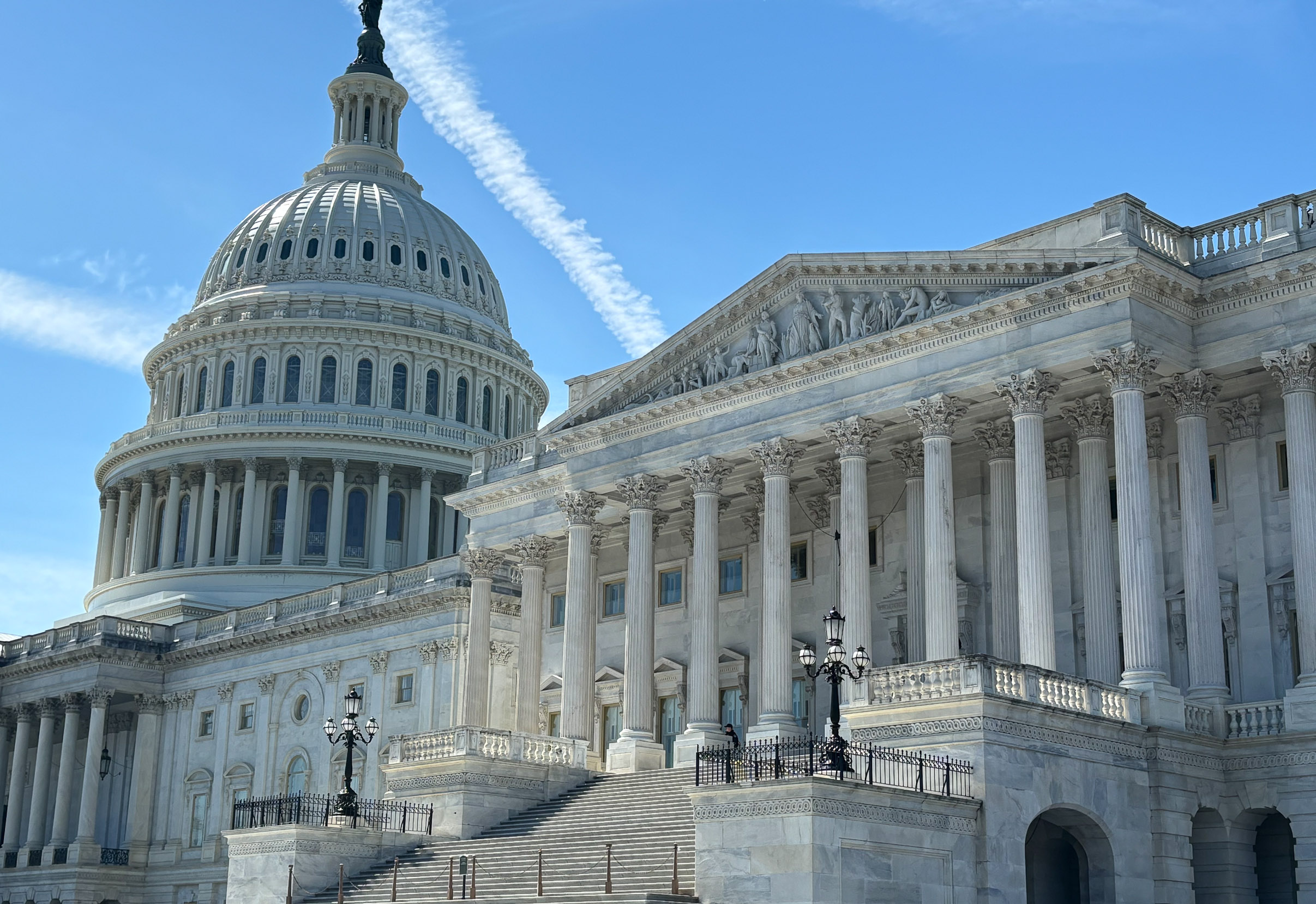We had 30 minutes to make our points during each meeting. We were a collective of fisherfolk, chefs, educators, and activists from across the country representing a variety of independent businesses and non-governmental, environmentally focused organizations visiting Capitol Hill. Across from us typically sat a legislative staffer for the U.S. Representative or Senator whose perspective we wanted to influence.
The message? We support healthy, vibrant, local seafood systems that include independent, community seafood harvesters. We oppose industrial finfish farms, particularly those proposed for federal waters from 3 to 200 miles offshore. This is the objective of Don’t Cage Our Oceans (DCO2), the non-profit that organized the gathering and that works against the devastating ecological and socio-economic impacts of industrial fish farms. I’ve been helping to bring more chefs into the conversation as a chef connector for DCO2 for the past year.
About 20 of us gathered in Washington, D.C. from March 19-21 to bring the message directly to legislators and their staff members from key coastal states. We separated into different geographical groups and visited 21 congressional offices, advocating for local fishermen, working waterfronts (docks, piers, processing plants, icehouses, etc.), and aquaculture with values (bivalve, seaweed/kelp, and small-scale aquaponics).
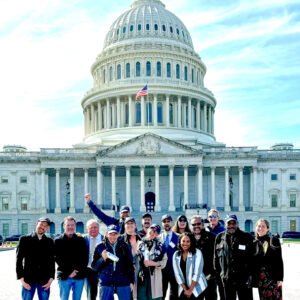
DCO2 collective bringing it to Capitol Hill last month.
We expressed support for the proposed Domestic Seafood Production Act, which is pending legislation that would provide resources and funding to support community seafood systems. DSPA would also withhold funding for finfish aquaculture in federal waters until more reasonable guidelines and accountability are in place.
We listed some of the most critical concerns around offshore finfish net pens, including the feed (a blend of forage fish plundered from seafood dependent coastal communities and fragile ecosystems and GMO monocrops like soy); disease; sea lice; heavy carcinogenic chemical use; escapes; and algal blooms.
We pointed to recent studies, including one that indicates more than 865 million salmon died globally from 2012 to 2022 because of disease, sea lice infestation, suffocation from low dissolved oxygen, chemical use, and other factors. Another study suggests the forage fish captured off the West Coast of Africa last year to feed farmed salmon in Norway could feed up to 4 million people in Africa.
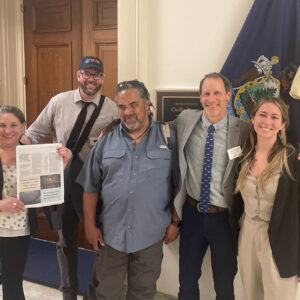
The New England team visiting Representative Chellie Pingree’s office. Left to right: Andrianna Natsoulas, executive director of Don’t Cage Our Oceans; Brett Tolley, national program coordinator of North American Marine Alliance; Jason Jarvis, Rhode Island fisherman and chairman of the NAMA board of directors; Abby Blessington, general manager of Montauk Seaweed Supply Company.
Staffers took notes, asked questions, and occasionally gave some idea of where their representative or senator stood on the issue. During my meeting with the staffer for Representative Chellie Pingree (D-ME-1), I lauded the congresswoman’s strong support for working waterfronts, particularly after the recent devastating storms that have destroyed so much coastal Maine infrastructure that fishermen depend on.
I also expressed disappointment that she co-sponsored the SEAfood Act that would open federal waters to four “pilot” finfish net pen farms. While the premise of trialing net pens in the open ocean may sound laudable given past significant ecological issues, the concern is that the legislation has very little real accountability to stop or remove one of these “pilots” if and when an ecological catastrophe occurs.
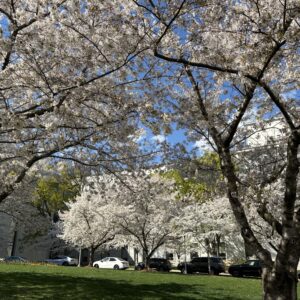
Peak cherry blossom season didn’t disappoint!
Additionally, decades of research and practice with existing offshore fish farms have already shown the devastating ecological consequences of these marine based concentrated animal feeding operations (CAFOs, often used to raise pigs, cows and chickens on land). Why should we spend more money and time, threatening more marine ecosystems only to arrive at the same conclusions as before?
I also met with staff from Representative Garrett Graves of Louisiana and Senator Elizabeth Warren of Massachusetts. I was part of the group that met with Representative Troy Carter (from New Orleans, my birthplace), who spoke passionately about protecting local fishermen and working waterfronts from the threats that industrial net pens pose.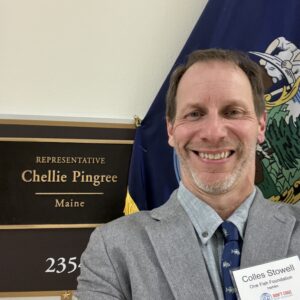
This was my first lobbying visit to Capitol Hill. Fortunately, this trip was planned well, and each team brought complementary perspectives and narrative strengths to each meeting. We all shared a sense of accomplishment, unity, and continued commitment to the overall mission.
Did we change any minds? That’s hard to say right now. But the effort to share our stories about aquaculture with values with those who could make a difference for the better was well worth it. And we’ll keep at it.
One conversation at a time.


